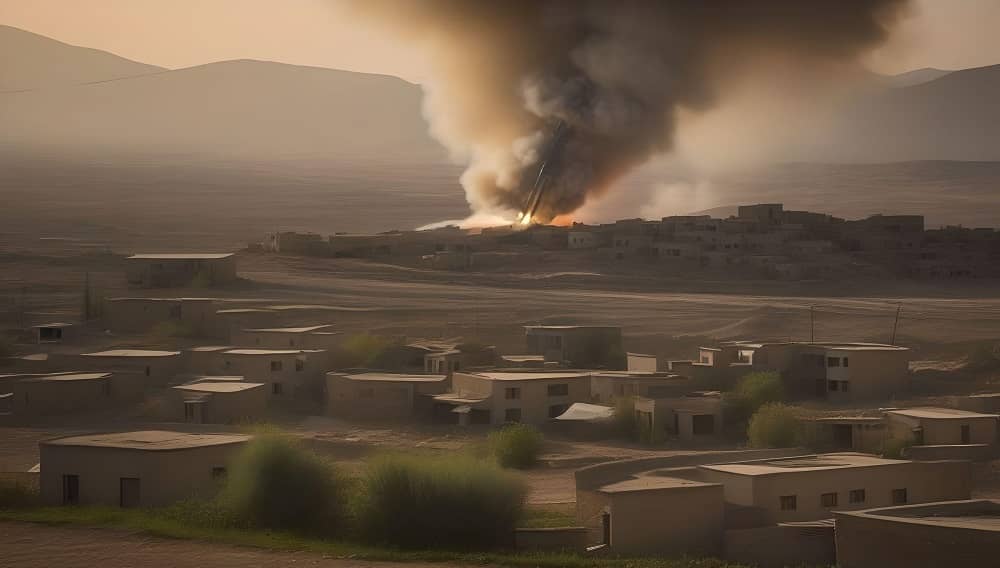
In a series of unexpected military operations last week, the Iranian regime launched attacks on three neighboring countries within a 24-hour window. Officially, these actions were framed as counter-terrorism efforts, but subsequent intelligence assessments and expert opinions have failed to corroborate the military effectiveness of these strikes.
This has reinforced perceptions among Iranians and the global community alike that the regime’s actions were more about political posturing than genuine security concerns.
Curiously, despite the Iranian officials’ vocal justification for these strikes, there has been a notable reluctance to address the responses from the targeted countries, particularly Pakistan. Following Iran’s missile attack, Pakistan conducted a retaliatory airstrike on Iranian territory, eliciting an unusual silence from the Iranian government.
This reticence was highlighted by Hammihan, a state-run newspaper, on January 20. The publication criticized the lack of response from Iranian political and military leaders, especially in contrast to the vocal reactions from Pakistani authorities. It pointed out that none of Iran’s high-ranking officials, including the president, Parliament Speaker Mohammad Bagher Ghalibaf, and several military leaders, publicly acknowledged Pakistan’s counterstrike.
The silence extended to Friday prayer ceremonies across Iran, where the incident was largely ignored. The most notable exception was Seyyed Ahmad Alamolhoda, a prominent prayer leader, who referenced Iran’s operations in Pakistan but did not mention the Pakistani retaliation.
Explaining Internal Drivers for #Iran’s Attacks on Pakistan, Iraq, and #Syriahttps://t.co/Qm9HDj5Q4f
— NCRI-FAC (@iran_policy) January 19, 2024
Khabar Online, another state-run news outlet, expressed concerns about the potential impact of Pakistan’s actions on public sentiment in Iraq. The website suggested that Iran’s repeated missile attacks on Iraqi soil, coupled with the lack of a similar response from the Iraqi government, could shift power dynamics and public opinion within Iraq.
In the days following these events, gestures of goodwill and attempts at de-escalation were exchanged between Tehran and Islamabad. However, Pakistan’s attack on Iranian soil, combined with recent casualties among Iranian military and paramilitary forces in Yemen and Syria, has sent a strong message to both the Iranian populace and the international community.
The recent missile launches are seen as an indication of the Iranian regime’s internal weaknesses and issues. Fawad Hossein, the Iraqi Foreign Minister, commented on the situation, stating that Iran is attempting to externalize its internal problems. Inside Iran, there is a growing awareness that the regime’s show of military strength is a diversion from its own vulnerabilities and fears of internal dissent.
#Iran Regime Continues With Satellite Launches
Iran Regime said that it would continue with its plan to launch three satellites into orbit this year, despite the recent US moves to curb the country’s ballistic missile programme,…https://t.co/XtR9oGYb7l pic.twitter.com/bcHvDyi3eH— NCRI-FAC (@iran_policy) April 11, 2019
These developments suggest that the Iranian regime responds only to assertiveness. However, despite significant losses and risks, the regime shows no signs of abandoning its aggressive posture. This underscores the need for international acknowledgment of recent popular uprisings in Iran and respect for the Iranian people’s aspirations for regime change.

MEK Iran (follow us on Twitter and Facebook), Maryam Rajavi’s on her site, Twitter & Facebook, NCRI (Twitter & Facebook), and People’s Mojahedin Organization of Iran – MEK IRAN – YouTu
